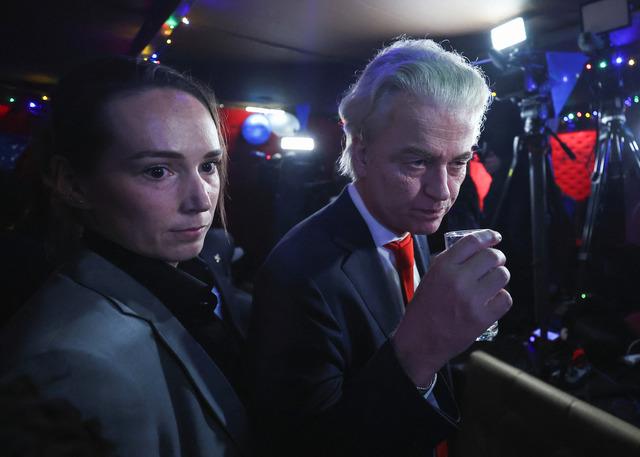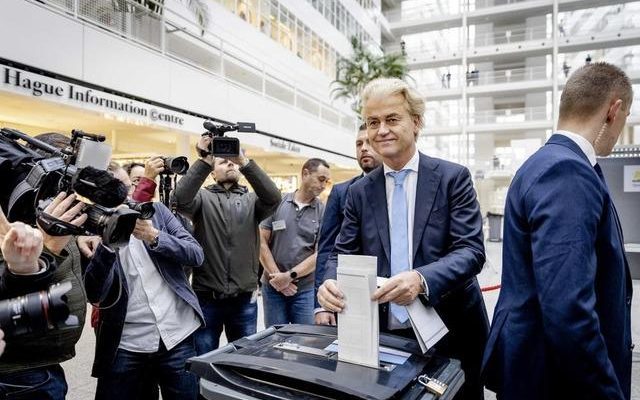According to the exit polls in the Netherlands, where voting was completed at 23.00 GMT, the PVV took first place by winning 35 out of 150 seats in the parliament, while the Workers’ Party (PvdA) and the Green Left (Groen) entered the elections in alliance under the leadership of former EU Commission Vice President Frans Timmermans. Links) took second place with 25 seats.
The People’s Party for Freedom and Democracy (VVD) led by Dilan Yeşilgöz-Zegerius, which lost 10 seats compared to the previous election, fell to third place with 24 seats. The New Social Contract Party (NSC), led by Pieter Omzigt, who was elected from the Christian Democratic Union (CDA) in the 2021 elections and later left and founded a new party, participated in the elections for the first time, and came fourth with 20 seats.
Compared to the previous election, among the coalition parties, Democrats 66 (D66) decreased from 24 to 10 seats, CDA decreased from 15 to 5 seats, and Christian Union Party (CU) decreased from 5 to 3 seats. The number of deputies of the Denk Party, whose members are mostly Turkish and other Muslims, remained unchanged compared to the previous election and became 3.
COALITION MEETINGS WILL START
Official results will be announced at the earliest 8 days after the election date. After the results become official, negotiations to form a government will begin. It is stated that the process in which the party with the most seats in the parliament will propose to other parties to form a government may take days, weeks or even months. Previously, the government in the country was established in 229 days after the election in 2021, this process took 225 days in 2017, 208 days in 1977 and 54 days in 2012.

In a country where no party can reach the majority to form a government on its own, a coalition government must have at least 76 seats.
YEŞİLGÖZ-ZEGERIUS IS OPEN TO COALITION WITH WILDERS
Yeşilgöz-Zegerius, the interim government’s Minister of Justice and Security, whose family emigrated from Turkey to the Netherlands, leaves the door open to a coalition with the anti-Islamic and far-right PVV led by Wilders.
Yeşilgöz-Zegerius, who became the head of the VVD after the leadership of the Dutch interim government’s Prime Minister Mark Rutte, supported the Dutch Parliament’s bill recognizing Armenian claims regarding the 1915 events when she was a member of parliament from the VVD party in 2018. On the other hand, Yeşilgöz-Zegerius made history as the first minister of justice in the country without a law degree.
In the Netherlands, the coalition government consisting of VVD, CDA, D66 and CU resigned on July 7, 2023 due to disagreements in immigration policies. (IHA-AA)

